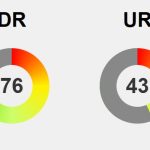IQ scores have long been regarded as a key measure of intelligence, yet do they truly capture our full potential? While these standardized tests assess reasoning, problem-solving, and memory, they often overlook vital traits like creativity, emotional resilience, and social understanding—qualities that shape real-world success. Originating in early 20th-century assessments, IQ testing emphasized logical abilities but faced criticism for its narrow scope and cultural biases. Today’s evolving perspective recognizes that intelligence is multifaceted, encompassing skills such as empathy, grit, and innovation—traits that foster adaptation and growth. But can a single number ever reflect the richness of human talent? This shift challenges us to rethink how we evaluate potential and success, emphasizing effort, perseverance, and emotional insight over mere test scores. Are we ready to embrace a broader, more inclusive view of human capability—one that unlocks the full spectrum of what it means to be truly intelligent?
Beyond IQ Scores: Unveiling the True Spectrum of Human Potential
When we think about intelligence, it’s easy to default to IQ scores—those number-based results from standardized tests that claim to measure how smart someone is. But human potential is far more complex. While IQ can offer a glimpse into reasoning, problem-solving, and certain mental skills, it doesn’t tell the full story. Traits like creativity, emotional resilience, grit, and social understanding are just as vital in shaping our success and growth.
Focusing only on IQ scores gives a narrow view of what it means to be intelligent. A high score might suggest strong reasoning abilities, but it doesn’t necessarily mean someone is emotionally balanced or creatively inventive. Conversely, people with average or below-average IQ scores can excel in empathy, adaptability, or innovative thinking—traits that often determine how well we handle challenges and contribute to our communities.
This shift in perspective matters because human potential isn’t fixed. It’s a tapestry woven from many qualities that work together. Traits like emotional resilience and curiosity influence how we respond to setbacks, how we innovate, and how we connect with others. Recognizing this broader range of abilities helps us foster environments—whether in schools, workplaces, or communities—that support diverse talents and strengths, moving beyond the limits of a single number.
The history of IQ testing sheds light on why these scores gained such prominence. Early efforts, like those of Alfred Binet and Lewis Terman, aimed to identify individuals who needed extra academic support. Over time, society began to see IQ as a way to rank and compare mental abilities, often treating it as an almost definitive measure. However, as ideas from Howard Gardner and Raymond Cattell emerged, it became clear that intelligence is layered and multifaceted, extending well beyond a single test score.
Today’s experts increasingly agree that intelligence encompasses much more than what standard tests can measure. Traits like creativity, emotional understanding, and perseverance often drive real-world success and fulfillment. Embracing this broader view reminds us that human potential is dynamic and diverse—something we can nurture and develop throughout our lives, not just something we measure at a single point in time.
Tracing the Roots of IQ Testing: From Structural Focus to Limitations
The development of IQ testing began in the early 20th century, driven by psychologists like Alfred Binet and Lewis Terman. Binet, working in France, created one of the first intelligence tests aimed at identifying children who needed extra academic support. His approach focused on reasoning, pattern recognition, and problem-solving—skills that could be assessed through specific tasks. Terman, an American psychologist, adapted Binet’s work into the Stanford-Binet Intelligence Scale, which became widely used in schools and clinics. This test was designed to produce a single score—an IQ—that compared an individual’s abilities to others their age.
Over time, the structure of IQ tests became more standardized, emphasizing core cognitive functions. These assessments primarily measure logical reasoning, memory, and language skills, reflecting a belief that these areas are central indicators of intelligence. Tests evaluate how well someone can analyze patterns, solve unfamiliar problems, and recall information—tasks that are straightforward to quantify and compare. As a result, IQ scores became a convenient metric for assessing mental agility across populations.
Most IQ tests focus on a few key domains. Logical reasoning tests assess how effectively a person can analyze and draw conclusions from patterns. Problem-solving sections measure their capacity to find solutions to novel challenges. Memory tasks evaluate how well they can manipulate information in real-time, while language assessments look at vocabulary and comprehension. These components form the backbone of traditional IQ tests and are seen as reliable measures of cognitive ability, at least in theory.
Despite their widespread use, IQ tests have faced significant criticism for their narrow scope. They tend to emphasize reasoning and memory while largely ignoring other forms of intelligence, such as creativity, emotional insight, or social skills. Critics argue that this structural focus creates a limited view of human potential—one that often overlooks talents that don’t fit neatly into cognitive assessments. Furthermore, early versions of these tests contained cultural biases, favoring certain backgrounds and educational experiences, which raised questions about fairness and accuracy.
Throughout the decades, alternative theories emerged challenging the idea that intelligence could be captured by a single score. Raymond Cattell distinguished between fluid intelligence—problem-solving in new situations—and crystallized intelligence—accumulated knowledge. Howard Gardner proposed multiple intelligences, emphasizing skills like musical talent or kinesthetic ability as equally valuable. These perspectives highlight that intelligence is layered and multifaceted, not reducible to a single number or a narrow set of skills.
Today, most experts agree that IQ tests provide only a partial picture of human ability. Traits like emotional intelligence, creativity, and resilience are crucial for success and fulfillment, yet they remain outside the scope of traditional assessments. Recognizing these limitations encourages a broader understanding of intelligence—one that appreciates the diverse talents and qualities that contribute to human potential.
This evolution in thinking challenges us to see intelligence as a dynamic, layered concept. It reminds us that cognitive skills are just one part of a much larger picture, which includes social, emotional, and creative abilities. Moving beyond the structural confines of early IQ testing allows us to foster environments—whether in education or workplaces—that nurture all aspects of human talent. This shift not only broadens our perspective but also helps unlock the full range of what people can achieve.
Modern Insights: Embracing a Multifaceted View of Intelligence
Today, many psychologists and educators see intelligence as something far richer and more nuanced than what traditional IQ tests capture. Instead of focusing narrowly on reasoning and problem-solving, they recognize that human potential encompasses a wide range of skills and traits that work together to shape our success and fulfillment. Emotional intelligence, for instance,—the ability to understand and manage your own feelings while reading others’—has become a crucial factor in building strong relationships and thriving in the workplace. It’s not just about mental agility; understanding how we connect with others and regulate our emotions can be just as vital.
Alongside emotional intelligence, traits like creativity and grit are gaining recognition for their pivotal roles. Creativity sparks innovation, helping us develop new ideas and solve problems in unexpected ways. Grit, or persistent effort over time, often determines whether someone can withstand setbacks and continue striving toward their goals. These qualities remind us that intelligence isn’t fixed; it’s adaptable and can be cultivated through effort, experience, and mindset.
This broader perspective shifts our understanding of potential from something static to a dynamic mix of skills. Social understanding, resilience, and curiosity are just as important as traditional cognitive abilities. When we value these traits, we create space for diverse talents and tailor education and careers to individual strengths. It’s a move away from measuring worth solely by test scores toward recognizing the full spectrum of human ability.
Research supports this shift. Studies consistently show that traits like emotional regulation and perseverance are strong predictors of long-term success. Carol Dweck’s growth mindset research highlights how effort and attitude matter as much—if not more—than innate intelligence. This evidence challenges the reliance on IQ scores alone and encourages nurturing qualities that foster resilience, adaptability, and lifelong learning.
While IQ tests still have their place, most experts agree they only tell part of the story. They overlook crucial qualities such as emotional insight, creativity, and social skills—traits that often drive innovation and deepen relationships. Recognizing these limits helps us foster environments—be it in schools, workplaces, or communities—that develop all aspects of human potential, not just cognitive skills.
Embracing this multifaceted view of intelligence invites us to see everyone’s strengths more clearly. It encourages us to cultivate our own diverse talents and to appreciate others’ abilities beyond a test score. By doing so, we foster a more inclusive, realistic understanding of what it truly means to be intelligent—one that celebrates the rich complexity of human potential in all its forms.
For those interested in exploring how these diverse aspects of intelligence can be developed, resources like this comprehensive guide offer valuable insights. Understanding and nurturing all facets of human potential can lead to more fulfilling personal and professional lives, ultimately fostering a more inclusive and innovative society. To learn more about strategies for developing emotional intelligence and other key traits, check out this article on developing multiple intelligences.
Practical Strategies: Cultivating Resilience, Creativity, and Grit in Daily Life
To nurture qualities like resilience, creativity, and grit in everyday life, creating environments that celebrate effort and learning from mistakes is essential. When people see that perseverance and continuous growth matter more than simply having the right answers, they become more willing to embrace challenges and view setbacks as opportunities to improve. Praising effort rather than innate talent shifts the focus toward progress, encouraging individuals to develop a growth mindset that fuels persistence and motivation over time.
Incorporating diverse activities can ignite creativity and innovative thinking. Open-ended projects, brainstorming sessions, and collaborative problem-solving push people to approach challenges from new angles. Such experiences foster a safe space for experimentation, where failure is an expected part of the process rather than a sign of inadequacy. As individuals explore different approaches and ideas, they build curiosity and confidence—key ingredients for original thinking and problem-solving outside traditional boundaries.
Setting clear, manageable goals helps build grit and perseverance. Breaking larger challenges into smaller steps makes progress tangible and less overwhelming. Recognizing small wins along the way reinforces the link between effort and achievement, boosting motivation during tough times. Tools like reflection journals or feedback sessions deepen self-awareness, allowing people to track their growth, identify areas for improvement, and celebrate resilience in action.
Creating opportunities for self-reflection and emotional awareness is equally vital. Encouraging individuals to analyze what worked, what didn’t, and what lessons they learned fosters emotional intelligence and self-regulation. Sharing stories of perseverance—such as someone overcoming repeated failures—can inspire others to see persistence as a valuable trait that often outweighs raw ability. This approach helps embed resilience and creativity as core parts of personal development.
Designing environments that value effort and persistence over innate talent sends a powerful message: human potential is shaped by our choices and mindset. When failure is framed as a stepping stone rather than a dead end, people become more willing to take risks and push their boundaries. Cultivating traits like resilience, grit, and creative thinking isn’t just about individual growth—it builds communities better equipped to adapt and thrive amid change and uncertainty.
Looking ahead, fostering these qualities becomes crucial for innovation and societal resilience. By emphasizing effort, reflection, and adaptability, we prepare ourselves and others to navigate a rapidly evolving world. Developing traits beyond IQ not only unlocks hidden potential but also creates a culture that values diverse talents and continuous growth, ensuring that everyone has the opportunity to contribute meaningfully.
Shaping the Future: Fostering Traits for Personal Growth and Societal Progress
Looking ahead, embracing qualities like resilience, creativity, and grit is essential for both personal growth and societal progress. These traits fuel adaptability and innovation, especially in a world that changes faster than ever. By valuing them, we open opportunities for many to succeed beyond what traditional IQ scores can predict. Recognizing that potential is dynamic and multifaceted helps us build communities and environments that nurture diverse talents and ways of thinking.
Shifting our focus from narrow success metrics means reimagining education, work, and social systems. Instead of rewarding test results alone, emphasizing effort, perseverance, and emotional intelligence creates a culture where setbacks are seen as stepping stones rather than failures. When effort and resilience are valued equally with intelligence, people are more motivated to develop these qualities and apply them meaningfully in all areas of life.
The journey of understanding what makes us truly capable doesn’t end here. As research continues to highlight the importance of traits like grit and emotional resilience, we see that growth is a lifelong process. Developing these qualities isn’t limited to childhood or formal education; it requires ongoing curiosity, reflection, and a willingness to adapt. Supporting this broader view encourages us to recognize and cultivate each person’s unique strengths through continuous effort.
Changing societal narratives around success is just as vital. Celebrating kindness, persistence, and adaptability fosters a culture where diverse talents are appreciated. These qualities often lead to more genuine and lasting achievements than raw talent alone. By focusing on these traits, we promote inclusivity and ensure everyone’s potential is valued, regardless of test scores.
Moving forward, prioritizing these qualities helps us prepare for an unpredictable future. Cultivating resilience, creativity, and grit equips us to face challenges with confidence and innovation. It’s about creating a mindset that sees setbacks as opportunities, and effort as the true measure of progress. This approach empowers individuals and communities alike to thrive in ways that numbers can’t fully capture.
Ultimately, nurturing these traits leads to a richer, more resilient society—one that recognizes human potential in all its forms. It encourages us to look beyond metrics and celebrate the qualities that truly drive progress: perseverance, curiosity, kindness, and adaptability. By doing so, we unlock the full spectrum of human ability and create a future where everyone has the chance to flourish.






